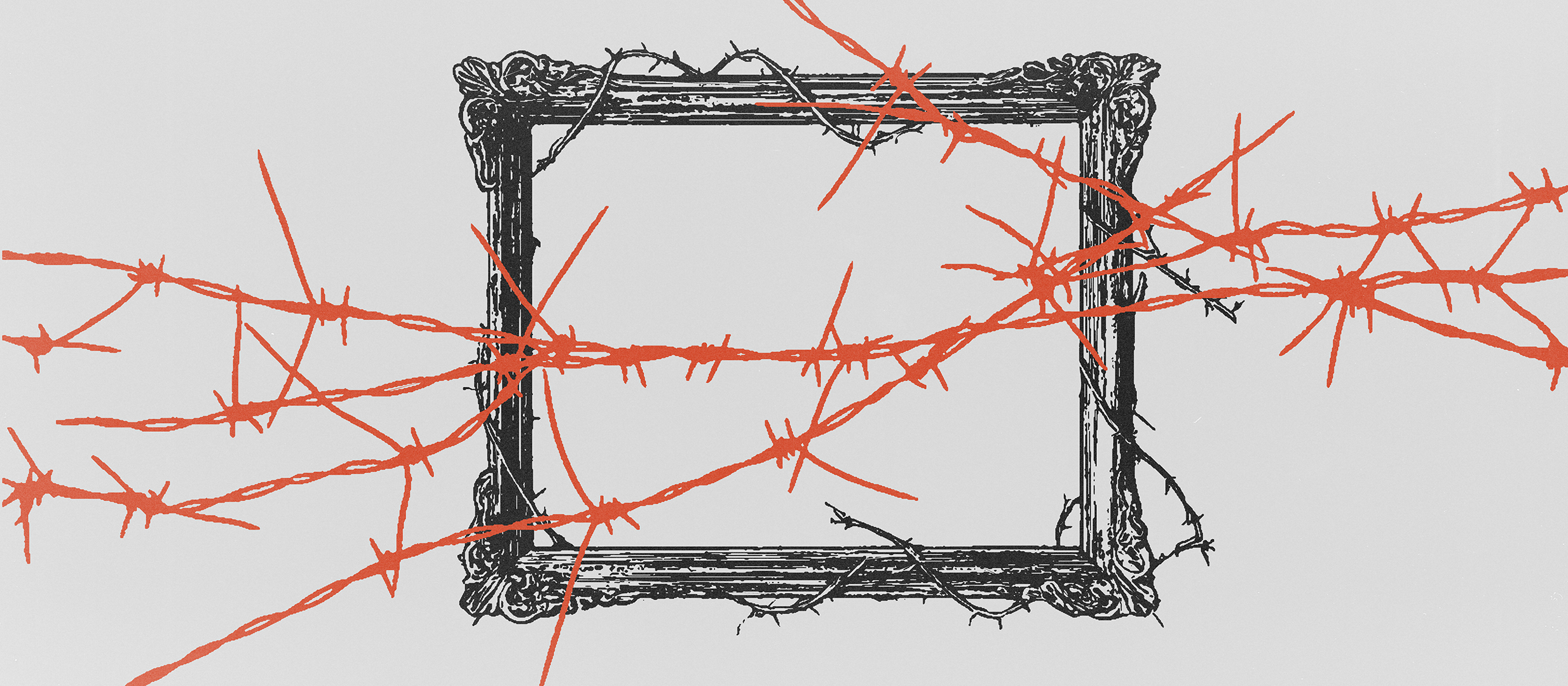The Analytical Group of the Belarusian Council for Culture have summed up the results of 2025. Here, we have compiled a top …

Repression
In total, over the 5 years of the assistance program, the Belarusian Council of Culture has responded to more than 2,000 requests, provided 1,400 consultations on issues of relocation, legalization, adaptation, obtaining visas, finding lawyers, and applying for support from partner funds. We have contributed to the issuance of more than 370 visas, humanitarian residence permits, etc., and 590 people have received financial and psychological assistance.
If you are a cultural figure and need psychological, legal, or other assistance, you can write to rada_help@byculture.org
The situation with political prisoners and cultural figures in Belarus
Overview of the Situation
The human rights situation in Belarus remains critical. Cultural figures face systematic repression, a core component of a broad campaign to stifle independent thought and civil society.
As of June 10, 2025, data from leading human rights organizations, including the Viasna Human Rights Centre and Dissidentby, indicates over 1,311 political prisoners in Belarus. PEN Belarus reports this total encompasses at least 97 cultural figures, with an additional 165 individuals associated with cultural activities currently detained or under restrictive measures on their freedom. These figures indicate widespread and systematic suppression within the cultural sphere. Between January and March 2025, PEN Belarus documented 319 instances of violations against cultural figures’ rights. These comprise:
- 115 cases of cultural content arbitrarily designated as “extremist”.
- 49 instances of censorship.
- 36 documented violations of the right to a fair trial.
- 12 new criminal cases initiated (half of which are repeat offenses since 2020).
This data reflects a strategy of pressure against independent culture: criminalization of creative expression, isolation of artists and intellectuals, and prohibition of cultural works.
Emblematic Cases: Profiles of Persecution
The following cases of cultural figures held as political prisoners represent the severe nature of these repressions and warrant international attention. The Belarusian Council for Culture has analyzed these cases and strongly recommends focusing on three key trends that necessitate immediate release, and which reflect the nature of the persecution.
1. Persecution for Creative Expression: Is Art a Crime in the 21st Century?
These cases demonstrate the regime’s response to free speech, song, and artistic expression. Individuals are prosecuted for their creative output, a powerful symbol of protest and hope.
- Dzmitryi Halavach, Yauhen Burlo, Andrei Yaremchyk (the Tor Band): Sentenced to terms ranging from 7 years and 6 months to 10 years in a penal colony for their music, arbitrarily labeled “extremist”. The band was declared an “extremist group”.
- Yauhen Burlo, a band musician: Was on crutches at sentencing and moves with difficulty; requires hip surgery. Health issues persist from a previous sentence; medication delivery is impossible.
- Andrei Yaremchyk, the band’s bass guitarist, is also on the list of extremists.
- Aliaksandr Sanchuk (drummer): Sentenced to 6 years in a penal colony for participation in protests and creative work.
- Aleh Khamenka, belarusian musician, radio host, teacher, composer, cultural leader, producer, leader of the folk-modern group “Palats”
2. Imprisonment Despite Severe Health Conditions or Old Age
The detention of individuals suffering from serious health conditions or of advanced age, coupled with deprivation of adequate medical care, leads to deteriorating health and severe suffering.
- Viachaslau Areshka, historian and culturologist: Sentenced to 13 years in a penal colony, despite significant health challenges. He suffers severe vision impairment, can barely see, but is denied disability registration in the colony.
- Uladzimir Hundar, civic activist and local historian: Sentenced to 20 years in a penal colony, suffering severe health conditions and denied essential medical assistance. He has a major disability (no legs) and partially lost hearing while imprisoned.
- Aliaksandr Fiaduta, distinguished literary critic, former public and cultural figure: Sentenced to 10 years in a penal colony. This writer suffers from gout, has heart problems and shortness of breath. For some time, the prisoner was not given his prescribed medications.
3. Intellectual and Civic Resistance: Prominent Public Figures
These individuals represent cultural, educational, and expert communities. The regime conducts a targeted campaign against them.
- Ales Bialiatski, writer, human rights defender, Nobel Peace Prize laureate: Sentenced to 10 years in a penal colony. He is also on the list of extremists.
- Valeryia Kastsiuhova, political analyst and editor: Sentenced to 10 years in a penal colony. She founded/edited “Our Opinion” expert community, edited/authored “Belarusian Yearbook” analytical reviews, and heads “Belarus in Focus” monitoring group.
- Pavel Belavus, publisher, cultural project organizer, founder of Symbal.by: Sentenced to 13 years of imprisonment. He is on the list of terrorists; the Investigative Committee stated he “under the guise of cultural and historical development… spread ideas of Belarusian nationalism, the aim of which was to change the state power in Belarus”.
- Aliaksei Kuzmin, soloist of “Zakon Huka” musical group: Sentenced to 7 years of imprisonment.
What the International Community Can Do
Cultural actors are punished for preserving language, memory, and meaning. Their repression is not only a human rights issue but a cultural emergency.
We call on international institutions, cultural organizations, and democratic governments to:
- Publicly condemn the repression of cultural actors in Belarus;
- Demand the immediate and unconditional release of all cultural political prisoners;
- Support rehabilitation and international protection mechanisms for persecuted cultural professionals;
- Strengthen cultural solidarity by amplifying Belarusian cultural voices in exile.
You may also like
Literature: A Prose-Free National Prize and Growing Activity Abroad Cinema: Self-Identification and Propaganda Theatre: A Cocktail of Repressions with a Small Pinch …

